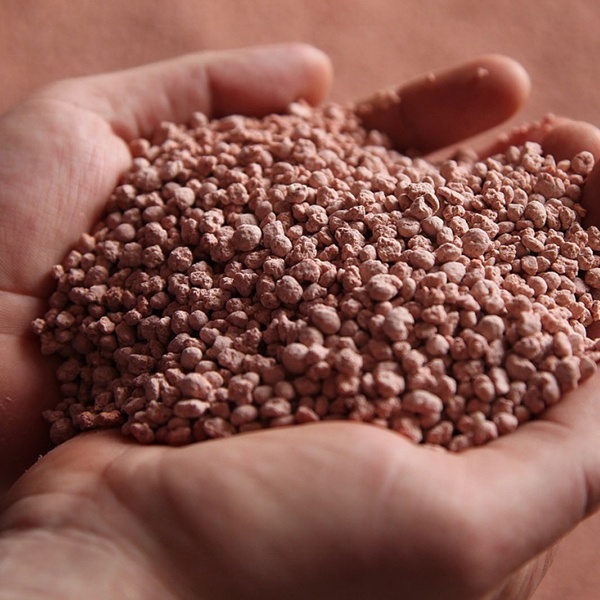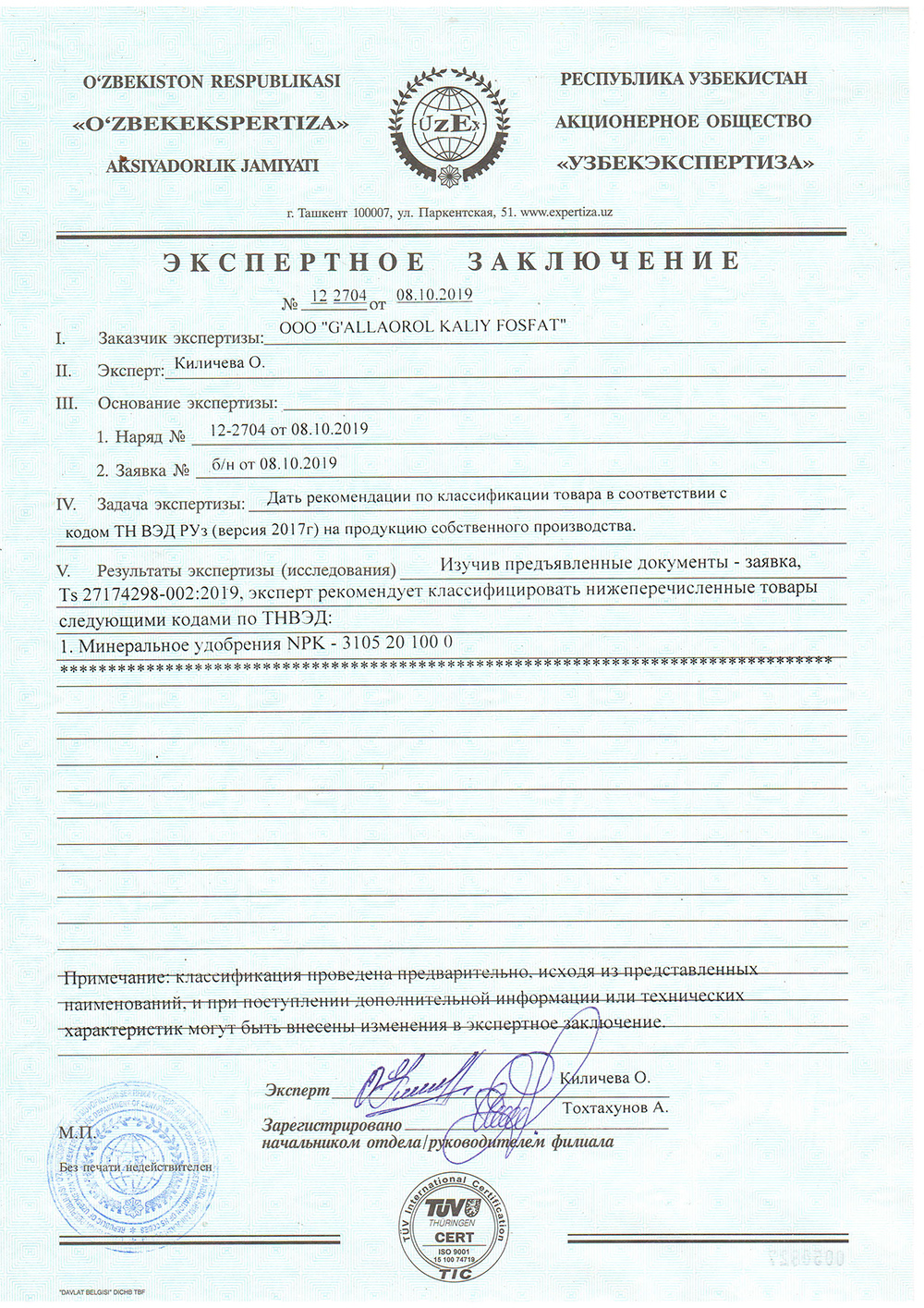
Water soluble NPK fertilizer 18:18:18
NPK fertilizer 18 18 18+3MgO+ME or Azofoska is a high-performance compound fertilizer containing essential plant nutrients such as nitrogen, phosphorus and potassium.
The composition contains magnesium and trace elements chelate (EDTA).
There are dosages NPK 16:16:16, NPK 18-18-18, NPK 19-9-19, NPK 22:11:11 recommended for different soil types. NPK 16:16:16 is the classic dosage used on soils that do not lack micronutrients, NPK 19-9-19 – phosphorus is included in this dosage in a smaller amount, used for soils rich in mobile phosphorus. NPK 22:11:11 – has a large amount of phosphorus and nitrogen, so you can restore the fertility of many “dead” soils.
NPK fertilizers are designed to be applied to any type of soil for the purpose of mineral nutrition of crops in crop production. Complex complex mixed mineral fertilizers are produced by steam granulation and contain in each granule the entire set of nutrients necessary for plant growth, which can significantly reduce transportation, storage and application costs compared to simple fertilizers. The applied production technology makes it possible to manufacture products with a wide range of content of the main nutritional components (N, P2O5, K2O), macro- (MgO, CaO, S, Na2O) and microelements (B, Mn, Zn, Cu, Mo) in accordance with consumer requests .
Packaging and storage
NPK is supplied in 25 kg bags. Store in a dry insulated area. You can buy NPK fertilizer by leaving a request on the website or by calling us.
Country of origin: Uzbekistan
Price: 13 800 000 soum / ton with VAT
Application of NPK 18:18:18 for growing a variety of crops
The fertilizer should only be used as a compound fertilizer for its intended purpose.
Fertilizer is used on all types of soil and in almost any soil for the main application. On heavy soils, fertilizer is best applied in autumn and embedded deep into the soil, on light sandy and sandy loamy soils – in spring with less deep incorporation.
Completely water-soluble, chlorine-free complex of nitrogen, phosphorus, potassium with trace elements in chelated form, intended for foliar feeding.
But there are averaged values derived from long-term observations of agronomists in experimental farms for:
– spring crops – 400 kg/ha
– corn – 250 kg/ha
– winter crops – 50 kg/ha
– sunflower – 200 kg/ha
– beets – 250 kg/ha
– rapeseed – 100 kg/ha
Ruit crops
| On fruit and berry crops , when applied under the root of the working solution | (200 – 300 g / 100 l of water) | 2-10 l under each plant |
| Foliar feeding is carried out | 2-7 kg/ha of fertilizer and working solution (200-300 g/100 l of water) – 800-1000 l/ha | 2-3 times during the season with an interval of 15-20 days |
| Application under the root by drip irrigation system on hydroponic culture. | (200-300 g/ 100 l of water)
0.5-2 l/ha |
In the day |
| Foliar top dressing | 200 – 300 g/ 100 l of water, working solution 1000-1500 l/ha | 2-3 times per season with an interval of 15-20 days |
In private farms, it is guided by the following standards:
– potatoes and tomatoes – 20 g/m2
– currant – 70 g/m2
– raspberry – 40 g/m2
– fruit trees – 90 g around the table.
Foliar treatment (spraying) is carried out in cloudy weather or in the evening. For 10 l. Warm water take 1-2 tbsp. NPK. After processing, abundant watering is required, because. even the composition diluted according to the norms shocks the plants.
Spraying strengthens the immunity of the culture, reduces the risk of late blight and stem rot.


